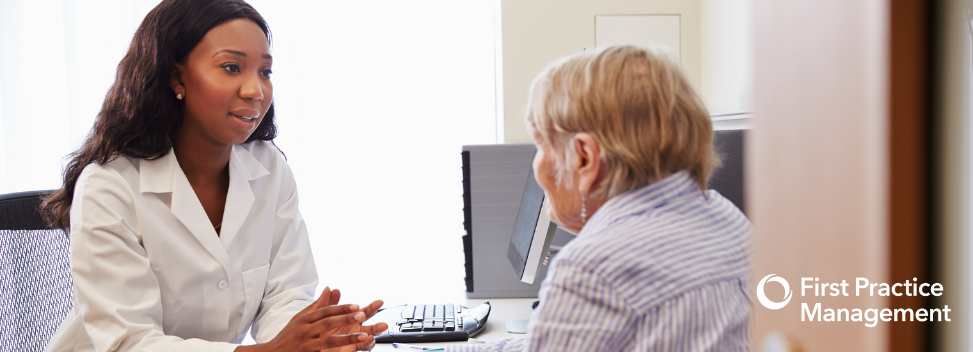
The issue of patients electronically recording their interactions with GPs and surgery staff is becoming an increasing concern for many who work in primary care. Whether this is done openly or covertly, it raises several issues around data protection and ethics, as well as what is simple good manners.
The NHS Long Term Plan states by 2023/24 every patient in England will be able to access a ‘digital first primary care offer’ - online consultations will likely be a key part of this, so good practice around recordings of these will also be important.
With knowledge of the law and an understanding of why a patient is wanting to record their calls or consultations, the situation is not always problematic. Sometimes, it may even be to your (or the GPs) advantage.
Recording telephone calls
1. Staff recording calls
There may be many reasons why a telephone call is recorded – for medico-legal purposes, staff training, or audit reasons.
Telephone calls often contain personal data, so any recordings fall under the remit of the Data Protection Act 2018 which implements the General Data Protection Regulation (GDPR). Article 5 of the GDPR sets out principles relating to the processing of personal data, which applies to all calls that are recorded. In summary, these are:
- lawfulness, fairness and transparency
- purpose limitation
- data minimisation
- accuracy
- storage limitation
- integrity and confidentiality (security)
The GMC has the following guidance: “Take all reasonable steps to inform callers that their call may be recorded. Given the sensitive nature of calls to medical advice lines, you should pay particular attention to ensuring that callers are aware that their call may be recorded. You must not make secret recordings of calls from patients.”
Consider a pre-recorded message, or wording on a website, along the lines of, "We may record, store, monitor and use any email, telephone or other communication with you for our training purposes, crime prevention, and to improve the quality of our services."
2. Patients recording calls
Patients don’t need permission from their doctor to record a call or a consultation, because they are simply processing their own personal information – they are therefore exempt from data protection principles, provided it is used for their own affairs. Section 36 of the Data Protection Act 1998 states: 'Personal data processed by an individual only for the purposes of that individual's personal, family or household affairs are exempt from data protection principles.'
Advice given by the Medical Defence Union (MDU) states that “a pragmatic response might be to invite the patient to record the call/consultation openly and ask them whether you can have a copy of the recording, which can then become part of the patient's medical records. In seeking their consent, you should reassure them the recording will be stored securely by the practice and only used for this purpose.”
Recording GP consultations
1.Staff recording consultations
The GMC has published guidance on making and using visual and audio recordings of patients. In it, they stress that patients must be given the reason for the recording to be happening, and it should only happen where you have the patient’s consent (or other authority) for doing so. Don’t pressure the patient into consenting, and stop the recording if you are asked to. Anonymise or code the recordings and store them securely, and for no longer than necessary.
The guidance also states that “recordings made as part of the patient’s care form part of the medical record, and should be treated in the same way as written material in terms of security and decisions about disclosures. You must therefore follow the GMC’s guidance in Confidentiality: good practice in handling patient information.”
Special care should be taken when it comes to recordings of children. Under 16s can still give consent if they have the capacity to understand, but their parents should be involved too. If the child is not capable of consenting, the parent or person acting as a parent must give consent before any recording happens.
The guidance also includes what to do about recordings made of patients now deceased.
2. Patients recording consultations
Studies have shown how bad the issue of patient forgetfulness can be following a consultation, with some suggesting that between 40% and 80% of all information is forgotten by the patient straight after a consultation. That’s understandable if the conversation has been about the multiple options available to the patient, with the terminology and statistics necessary to fully understand the situation.
Providing no other patient is involved, it is legal for them to record it for their own use, according to the data protection regulations, as the data is their own, but patients should ideally seek the agreement of the doctor. Staff may feel uncomfortable about this, especially if the patient does it or announces their intention in a challenging way, but as long as the advice is of a sound professional standard, the staff member should be assured that it is OK to do. Bear in mind the reasons for the patient wanting to do this – they may be in pain at that moment and not be able to concentrate properly, or be having language difficulties, or they may have other learning difficulties. Having an empathetic appreciation of the patient’s situation helps; they likely want to have a level of control over their condition, and their life. They want to hold on to the knowledge they learn in their consultation.
On the other side of the coin, it is also understandable for a doctor or other professional to have a worry at the back of their mind about the recording potentially being used against them in the future. But this is a relatively rare occurrence; doctors try to do their best for all patients, and nobody is perfect. GPs acting in a professional manner should have nothing to fear.
So in summary:
- Always let patients know if they are being recorded.
- Be transparent about the reasons they are being recorded.
- Be open to being recorded yourself and see the benefits from the view of the patient.
- Keep any recordings secure and for no longer than necessary.
FPM Group’s Thornfields team provides training and resources to help practice managers and GP surgeries. To access our course on Information Governance and Confidentiality in General Practice, follow this link.



0 Comments